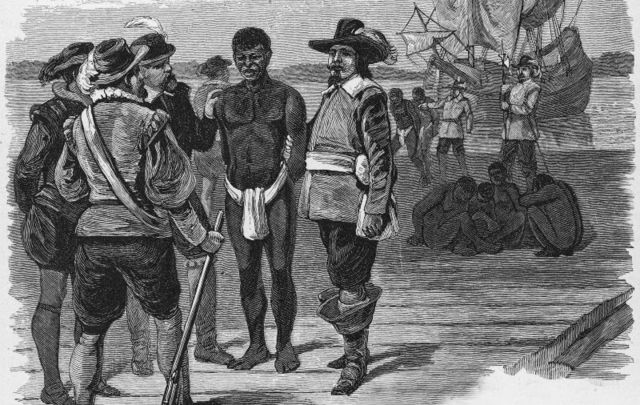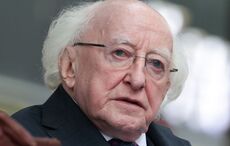BBC US correspondent Aleem Maqbool reports on how the US learned the slave trade from their British masters before independence.
In a new BBC report, Aleem Maqbool quotes Professor Cassandra Newby-Alexander, a historian at Norfolk State University in Virginia: "Britain put its stamp on America from the beginning. It was Britain who brought the first unfree Africans to this country and helped to start slavery in America."
Read More: Time for Irish to disavow slavery champion John Mitchel
The historian says the first British ships carrying slaves arrived in Old Point Comfort, in the colony of Virginia, in 1619.
"It was late August of 1619, and it was the English vessel White Lion," Professor Newby-Alexander says. She believed the ship brought 20 men and women "that had been ripped from their homeland in what is now Angola.”
"Once they were here, they (The British shipowners) began to sell those individuals that they saw as part of their cargo to the leadership in the colony."
Thus began the shameful legacy of slavery in America.
"America didn't become officially America until 1783 when the Treaty of Paris was signed. Up until that point, everything that America created was English, including slavery, including laws on which slavery and inequality was built," she says.
"It came from England. It came from the English system.
"If you claim that America has its foundational culture based on England, then you've got to take it all. That includes the systemic racism in our laws, in our practices and in our culture."
Read More: "How the Irish Became White" is a history book that fails the history test
The BBC report noted: “Policing in the southern United States had its origins in slave patrols set up under the British in the early 1700s. Local laws started to be drawn up that regarded black people as inferior.”
Professor Newby-Alexander draws a direct line to the issues America faces today.
"The policing that we see that automatically assumes that a black person is a criminal, is already guilty, that started from the founding of our country that viewed Africans as systemically different."
Professor Newby-Alexander pointed out that “A lot of the British elite again found themselves on the wrong side of history. They sent supplies and arms to the confederacy, many wanting slavery to continue because of their own business interests. Their side was defeated.”
You can watch Maqbool's BBC report here:
Read More: Galway to honor Virginia slave who died in Ireland, America's first sports star




Comments